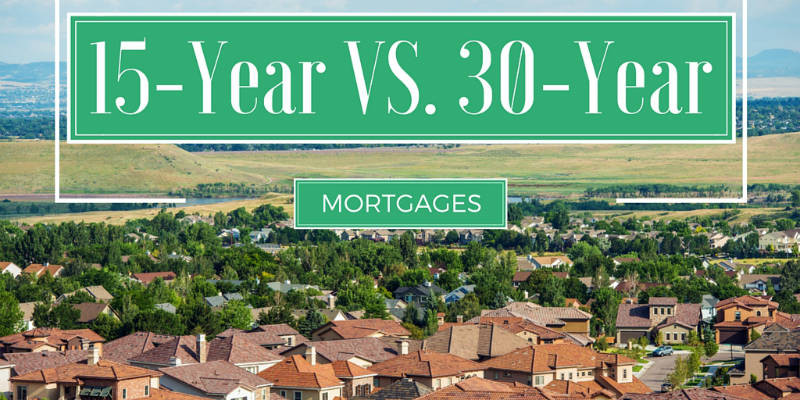
For those who are buying a house, banks and lenders that offer home loans give borrowers the option to pay their mortgages over the course of either 15 years or 30 years and anywhere within that range. A 15-year mortgage allows you, the borrower, to pay off the principal on your new house quickly without accruing 15 extra years of interest. A 30-year loan lowers your payments so you can live comfortably while paying off your home loan.
Which mortgage is better?
For the average home buyer, neither the 15 nor the 30-year mortgage is better than the other. Advantages that come with paying off your home loan faster with a 15-year mortgage are offset by the advantages of saving money on a monthly basis over the life of a 30-year mortgage. Factors like differing interest rates, available tax deductions, and investment opportunities mean that the mortgage life that will work better for you depends on how you manage your money.
Amortization
Amortization is a term used in the accounting industry. It refers to the allocation of the cost of an asset over a specified period. In real estate, amortization refers to how your loan payment's principal is scheduled to be paid over time. How a loan amortizes is what a careful homebuyer should consider first when deciding between a 15-year and 30-year commitment.
What are the advantages of a 15 year mortgage?
A short amortization allows borrowers to enjoy:
- Lower interest rates If you're approved for a 15-year loan, your bank has recognized that you are credible and considers you a low-risk investment. They will lower your interest rate accordingly.
- Lower total interest Since total interest depends on how your loan is amortized, a shorter payment period means interest has less time to accrue.
- Fast debt fulfillment Borrowers with a goal to pay off debts can work down outstanding loans more quickly by paying more money over a shorter amount of time.
- Property ownership Especially for investors, owning properties is lucrative. Ownership is also a point of pride, and property ownership comes with exclusive rights and privileges.
Is the 15 year mortgage good for investors?
For investors interested in using the additional cash flow after a 15 year home loan has been paid, capital gains tax is an important consideration. The U.S. government can tax income made through investments via capital gains tax. If you opt for a 30-year mortgage so you can invest your monthly savings immediately, you'll be paying 30 years of capital gains tax. However, if you are paying the principal of a 15-year loan without making investments immediately, you don't pay any capital gains tax. You can deduct your loan interest from your taxable income every year, saving you lots of tax money that can later be invested.
When should I take a shorter loan?
It's best to take a 15-year mortgage if interest rates are high when you buy a home. If you plan to take a fixed-rate mortgage, you'll be locked in at a high-interest rate for 30 years. You'll lose significantly more money paying off interest at the end of your loan if you opt for a 30-year mortgage over a 15-year mortgage during times of high interest rates. Realtors recommend seriously considering a 15-year mortgage when interest rates on home loans rise above 4%. Inflation also plays into how much money a 15-year loan will save you. In America's ever-expanding economy, inflation is unavoidable. Each additional year you spend paying off your loan allows inflation to decrease the value of your dollar. If you plan to make investments after you've paid off your home loan, opting for a 15-year loan will maximize the value of each dollar you invest.
What are the advantages of a 30-year mortgage?
- Lower monthly payments A longer amortization allows you to keep monthly payments at a minimum. Extra money each month can be saved or used for home improvements.
- Immediate investment opportunities The extra money from low monthly payments can also be invested elsewhere. There's no need to wait until the loan is paid.
- Increased buying power Lower monthly payments also permit you to stretch your budget for buying a house. You'll be able to afford homes at a higher price, giving you more flexibility when shopping.
How can investors use extra money from a 30 year mortgage?
A disciplined investor who uses a set amount of extra money each month to finance profitable investments will find a 30-year mortgage more lucrative than a 15-year loan. Your assets' liquidity makes immediate investment with a 30 year loan worthwhile. Liquid assets are objects or properties that can be easily turned into cash without losing value. A house is not a liquid asset. You can't be guaranteed that you'll get a return on your investment in a home or that you'll even be able to sell it. But other investments, like savings accounts or stocks, can accrue value and sell fast. Each payment you make on your home turns your liquid assets into home ownership. Since home ownership isn't liquid, you won't have quick access to the money in your home if an emergency occurs. Keeping your assets liquid gives you the freedom to move investments from one place to another easily. You can maximize profits through liquid assets.
Don't forget about capital gains tax and inflation.
Bear in mind - the more money you make investing, the more you'll have to pay in capital gains tax. If you make too much money, the value of the money you lose in taxes could exceed the money you would save on a 15-year mortgage. Your house payments and money you've earned will also lose value due to inflation over the course of your 30-year loan. Like investment, a 30-year mortgage is a gamble.
Posted by Brad Pauly on
Leave A Comment